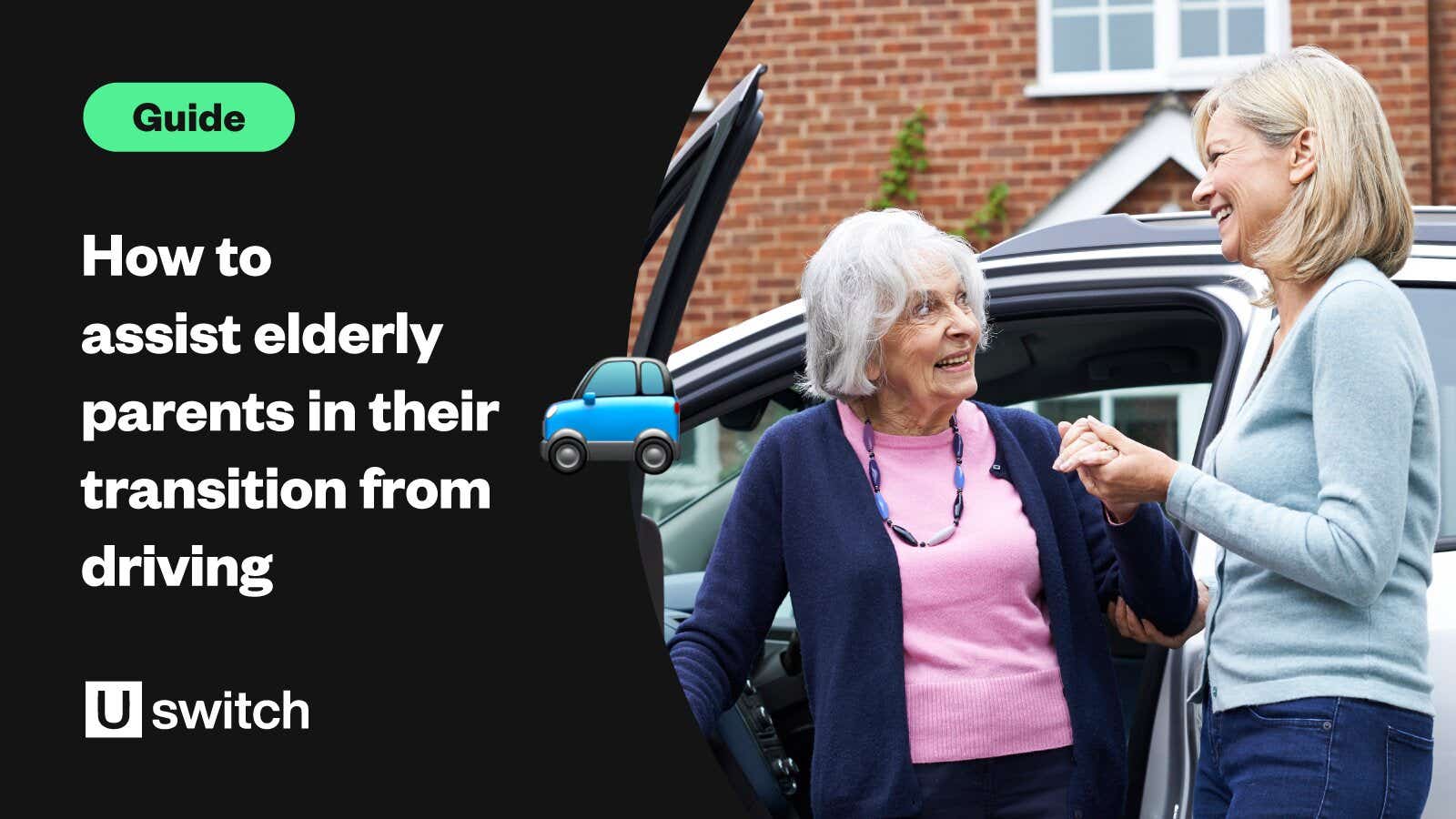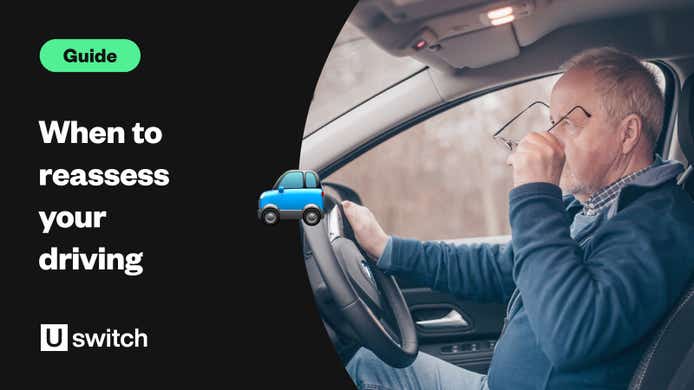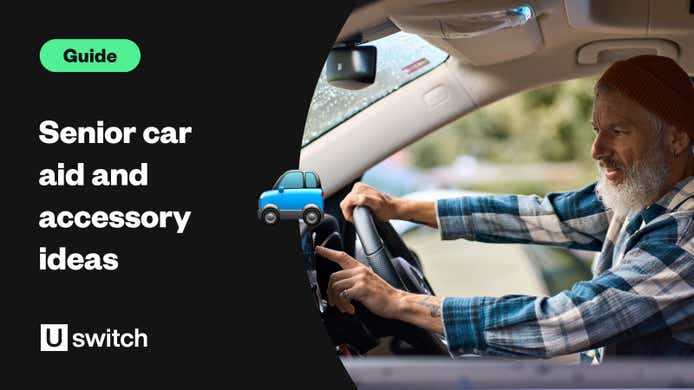In the UK, there is no upper age limit for holding a licence, so it can be difficult to know when to stop driving. When your parents turn 70, they will need to renew their driving licence with the DVLA, but as they only need to self-certify their fitness to drive, this process relies on their ability to honestly and objectively judge their own fitness.
Freedom of Information Act data obtained by the BBC revealed that, in 2022, the DVLA received 48,754 submissions of concern over someone’s fitness to drive (inclusive of those from medical professionals, third parties, or drivers themselves). The conversation around when a loved one should retire from driving is a difficult one, but necessary for the safety of themselves and others on the road.
Recognising the signs that your parent’s driving habits may need to change
You may be worried about your parent’s ability to drive because you view them as becoming weaker or ‘too old’ in general. But if you are going to have an effective and respectful conversation with your parent(s), you will need to have evidence of signs that indicate their safety is at risk.
Physical indications your elderly parent(s) should quit driving:
- They are on new medication. It is paramount that all safety information provided with new medication (prescribed or over the counter) is read thoroughly and advice is followed.
- They suffer from pain or weakness in certain body parts, which may interfere with their ability to drive comfortably or safely. They need to be strong enough to pull the handbrake and have ease of movement in their neck and shoulders in order to check their wing mirrors.
- Their eyesight has gotten worse. You are legally required to be able to read a licence plate from a distance of 20 metres.
Key signs to watch out for:
- They drift in lanes and struggle to keep the car on a steady straight.
- If they appear confused when driving or forgetful of the direction they are taking.
- Their car has dents, particularly if they have not been open about how they happened.
How to initiate the conversation about your parent's driving
This isn’t an easy conversation for either of you - your elderly parent(s) will not want to feel like a burden, and no child is comfortable admitting their parent(s) are becoming frail - which is why it’s paramount to tackle it sensitively and compassionately.
Don’t leave the conversation until there has already been an accident or near-miss, as this can feel confrontational. Instead, tackle the issue head-on, as soon as you first spot cause for concern.
The Royal Society for the Prevention of Accidents has created a self-assessment form to help older drivers consider whether their driving ability has declined. You could bring a copy of this checklist to your chat and suggest completing it together, using it as an opportunity to identify where your perspectives on their driving may differ. Having an open discussion about the points collated by a third party will help prevent an accusatory tone.
Remind your parents that you know how important their independence is to them and that you also care about maintaining this for them. Ask them about their main concerns around relying on a different transport option, so that you can try to quell these worries for them.
Ultimately you cannot force your elderly parent to give up driving; if they disagree with your reasons for concern, you could instead approach the conversation as an opportunity for compromise. Suggest that they avoid driving when the light outside is poor, consider giving up driving long distances, or ask that they get a GPS to assist in directions and speed limit awareness.
For more information and tips, visit our senior driving hub.
Explore alternatives to driving together
When trying to convince your elderly parents to retire from driving, it’s a good idea to highlight their other options for getting around and remind them that their independence need not suffer.
There are many schemes across the UK to encourage older people to use public transport, including the older person’s bus pass for those aged 66 and over. This gives them access to reduced fares across the country. Londoners can claim free travel (time restrictions apply) on the entire TfL network with a 60+ London Oyster photocard or the Freedom Pass.
If your parent has additional mobility needs, they may be able to use Community Transport schemes, which usually consist of wheelchair-accessible minibus transport. Age UK has a tool where you can search for these services in your parent’s local area, and in some parts of the UK, they run a ‘befriending scheme’ offering elderly people a travel companion.
Offering support and assistance
It’s important that your elderly relative doesn’t feel like their change in circumstances is an afterthought to those around them. You should continue to offer support and assistance even after you have both agreed that they should stop driving, particularly when offering your parent a lift.
Be sure to proactively ask and offer assistance, rather than waiting for them to ask, which may make them feel like a burden.
Build a plan with other family members or friends to offer lifts—not just to important appointments, but for regular outings. It’s important to help maintain a sense of normalcy in your parent’s life, and this lies in supporting them to continue to lead a full life that isn’t confined to GP visits.
What to do if your elderly parent disagrees that their driving ability has changed?
When trying to convince your elderly parent to give up driving, it’s possible that they may get defensive. It’s important that you continue to handle the conversation with sensitivity and respect, as it’s normal to be resistant to what feels like the sacrificing of their independence.
If, after restarting your argument, you are still met with disagreement, you could suggest that your parent seek the advice of their GP. Whilst drivers are expected to self-certify their fitness to drive after turning 70, healthcare professionals can nevertheless offer advice and perspective on the cognitive and physical changes that are making driving independently unwise.
You can also suggest that your parent visit a driving mobility centre for an independent assessment. Advice from those closest to us can often make us stubborn, so sometimes an objective third party is the best option.
Assessors at these centres determine your relative’s physical and cognitive fitness, as well as any additional needs. They may also discuss car modifications that will allow your parent to continue driving independently.
How to help them adjust and retain self-esteem
A key point to emphasise throughout these discussions is that being unable to drive independently does not make it the end of the road for your parent’s independent life. Impress that this is simply a new chapter to navigate and that they should continue to get out to see friends or do their shopping, and that they can lean on you for support whenever they need it.
Being too old to drive can be a difficult thing for some people to accept, so it's important to do all you can to ensure that your parents still have an active social life even without their own car. If your parent will be making the switch to public transport for getting out and about, offer to run some of their regular routes with them so they can build confidence on the network.






